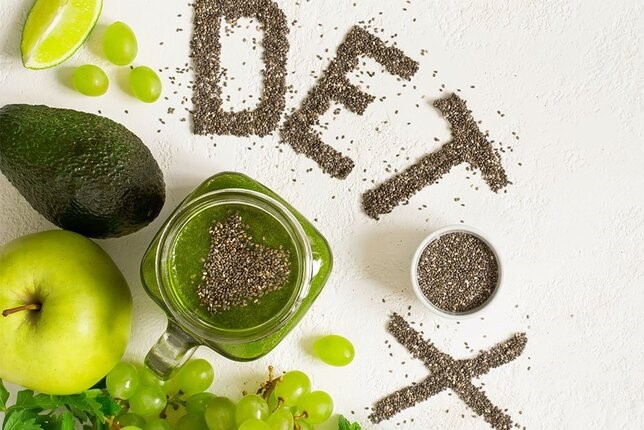
What is detox and why is it important
After the Christmas holidays, one hears the word ‘detox’ mentioned more and more often on TV and in the various media, in connection with various activities to get back into shape and regain a perfect mental and physical balance
But what exactly is detox and why is it so important?
Detox’ is simply the shortened form of the words ‘detoxification’/’detoxicate’, which indicate treatments to detoxify the body and rid it of toxins.
It is a term sometimes misused to indicate drastic, and often ‘do-it-yourself’ diets that promise to lose bloating and kilos, whereas it should be a path that concerns the psycho-physical well-being of the whole body and should start from certified protocols.
What are toxins
Toxins are waste products, the waste products that the body accumulates due to factors such as:
- stress and hectic life
- sedentary lifestyle;
- unbalanced diet (e.g. low in fibre);
- treatments, such as antibiotics.
We speak, specifically, of
- exogenous toxins: if they come from outside (through air, food, water, etc.);
- endogenous toxins: if they are produced naturally by processes within the body.
Why detoxify
Intoxication of the body and difficulty in disposing of accumulated toxins can cause:
- tiredness;
- gastro-intestinal problems;
- skin disorders;
- mood swings or depression;
- frequent insomnia;
- which have a negative impact on one’s quality of life and can sometimes become difficult to manage if not properly treated.
Gut wellness and the immune system
Hippocrates, more than 2,000 years ago, stated that all diseases originate in the intestine.
Without going that far, we can say, in any case, that the intestine contains within it a large part of the immune system’s defences, so that keeping this organ healthy and detoxified is certainly an important element in preserving an optimal state of health, while on the contrary, this can have a negative effect on the occurrence of diseases such as, to give some examples, autoimmune disorders, rheumatology and allergies.
Obviously, the detox does not only go through the intestines; it is a holistic approach that involves the whole body, passing through the liver, skin, kidneys, etc.
When to follow a detox course
Detoxifying treatments that reduce the level of toxins may be indicated in the face of frequent or constant presence of symptoms such as:
- physical and/or mental fatigue
- difficulty concentrating
- headaches;
- persistent mood swings or depression;
- abdominal bloating;
- meteorism;
- poor digestion;
- constipation or diarrhoea;
- insomnia;
- skin problems such as acne and rashes;
- excess pounds and reduced ability to lose them.
Detox: how to detoxify the body from toxins
As already mentioned, detox does not mean drastic diets, but a remise en forme that can start with a series of haematochemical-instrumental tests and a discussion with the gastroenterologist, and then move on to the elaboration of a personalised nutritional plan that will restore the right psycho-physical balance of the person together with multidisciplinary evaluations that can also involve, for example, the dermatological, physiatric/physiotherapeutic, cardiological, psycho-neurological and much more.
Read Also
Emergency Live Even More…Live: Download The New Free App Of Your Newspaper For IOS And Android
Mediterranean Diet: Getting Back In Shape Relies On Anti-Ageing Foods
Mindful Eating: The Importance Of A Conscious Diet
In Search Of A Personalised Diet
The Diabetic Diet: 3 False Myths To Dispel
Why Is Everyone Talking About Intuitive Eating Lately?
Climate Change: The Environmental Impact Of Christmas, How Significant It Is And How To Reduce It
Holidays Over: The Vademecum For Healthy Eating And Better Fitness
Bloated Belly: What To Eat During The Holidays
Traveller’s Diarrhoea: Tips To Prevent And Treat It
Jet Lag: How To Reduce Symptoms After A Long Journey?


